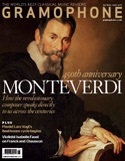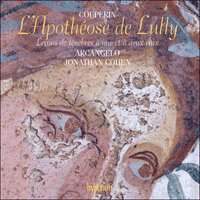Texte paru dans: / Appeared in: |
|
|
Outil de traduction (Très approximatif) |
|
|
Reviewer:
Julie Anne Sadie
One of the particular delights of Cohen’s Arcangelo is the idiomatic continuoplaying of the lutenist Thomas Dunford. From the outset he assumes the dominant role in elaborating the bass, rather than Cohen at the harpsichord. That this was a deliberate artistic decision is borne out by the inner logic of the instrumentation in both works on this disc. Where Rousset varied the ensemble textures of the Apothéose with flutes, oboes and violins in the Lullian manner, Cohen has created a magical, delicate palette of chamber music colours with merely two violins and continuo. In the ‘Vol de Mercure’ and the ‘Enlèvement de Lulli au Parnasse’, the solo lute accompaniment adds to the sense of moving through air. Jonathan Manson’s solo viol accompaniments in the ‘Rumeur Souteraine’ and ‘Plaintes des Mêmes’ blend beautifully with the violins. The two Airs in which Lully and Corelli accompany one another transport the listener to Louis XIV’s private quarters at Versailles, where the Apothéose might well have been performed in the closing days of his reign (and published at a later date). Although Couperin composed the Leçons de Ténèbres for the nuns of Longchamp, they could well have been privately performed at Versailles. Of a planned set of nine, only three made it into print. In this performance the distinction between the melismatic elaborations of the Hebrew letters and the declamatory Latin narrative is signalled by the lute: absent in the Hebrew, eloquent in the Latin. The soprano Katherine Watson gives a stylish, sensitive performance of the first that reflects her earlier work with William Christie; in the second there is evidence that the operatic soprano Anna Dennis is less wedded to the French Baroque repertoire. The two nevertheless give a glowing account of the third.
|
|




